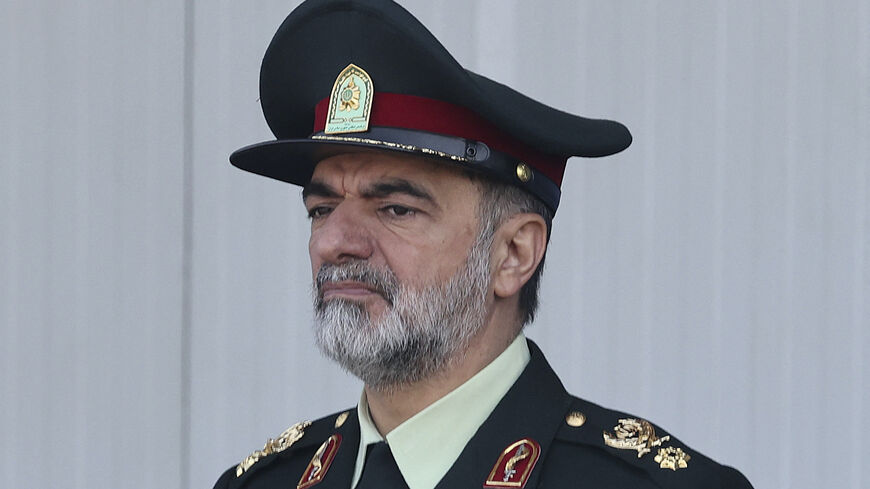TEHRAN — Commander of the Iranian Police, Brig. Gen. Ahmad-Reza Radan, has been on a rare visit to Moscow since Tuesday, where he is discussing policing cooperation with the country's most senior security officials.
After Radan's meeting with Russia's National Guard Commander, Viktor Zolotov, Iran's state-broadcaster reported that the two sides had inked a "long-term deal on policing and law enforcement."
During the visit, according to Iranian media, Radan will see up close "Russian police's capacities in combating organized crime."
The Iranian officer also sat down with Russia's most senior security man, Nikolai Patrushev, who has been leading the country's Security Council for 15 years. A report by Nour News, the outlet run by Iran's Supreme National Security Council, said Radan had discussed with Patrushev cooperation on "special services," without elaborating on what those services were.
Back in March, the Wall Street Journal wrote that Tehran has been receiving Moscow's assistance on "advanced digital-surveillance capabilities" in exchange for Iranian drones, which Russia is believed to be using against Ukrainian targets. Iranian officials have dismissed the report.
Patrushev himself visited Iran last November at the height of unprecedented protests the Iranian establishment had to grapple with in the fallout of Mahsa Amini's death in custody of a hijab enforcing police squad. Exiled Iranian activists argued at the time that Patrushev was there for long-term advice to Iranian authorities on how to quell the protests.
Citing a member of the Russian State Duma, the US-based Iran International TV reported on Thursday that part of the agenda in Radan's visit was discussions on how to counter plans by "Western intelligence agencies to instigate organized unrest in Iran and Russia."
The already heavy-handed response by Iranian police and the Islamic Revolutionary Guard Corps to the anti-government demonstrations has driven international outcries. Nearly 530 Iranians have been killed in the crackdown, according to a tally documented by the Human Rights Activists News Agency (HRANA).
The sitting Iranian police commander has long earned notoriety for his uncompressing approach manifested in his brutal treatment of the 2009 post-election protests in the country.
Blacklisted by the United States since 2010 over rights violations, Radan was reinstated to his post by Supreme Leader Ayatollah Ali Khamenei in January, in what appeared to be the cleric's discontent with the failure of Radan's predecessor to tackle the latest security crisis.
Under Radan's current tenure, the Iranian police have been even doubling down on their repression against the violators of the strict and contentious mandatory hijab laws. One of the novel forms of the clampdown has appeared in the closure of hundreds of businesses over their alleged refusal to bar female customers without headscarves.
Earlier this month, a local police chief in Radan's chain of command in the northern Mazandaran province triggered social media blowback after being caught on camera directing his forces to "break the neck of anyone who breaks the [hijab] norms."
"And I will assume responsibility," the commander said in an apparent word of reassurance and impunity to his officers.








